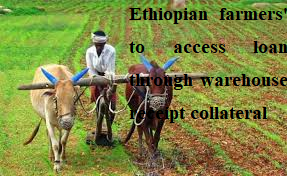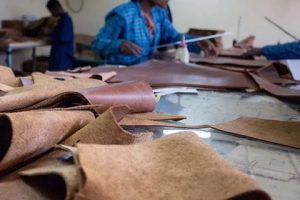
BY TAMERU REGASA
With potentially affluent arable land, multitude of productive force, habitable weather condition and the likes, Ethiopia has now found the heart of growth and food self-sufficiency. It is working from dawn to dusk to make poverty history and get its citizens respected through buttressing production and productivity. Of the multitude of means that have been employed so far to come up with proliferated economic growth, the country is determined than ever before to well expand fruit and vegetables production including Avocado.
According to the information obtained from Ministry of Agriculture, avocado is one of the most nutritious fruits gaining up surging demand in both global and domestic markets. Ethiopia holds unique and strategic locational advantage to produce premium quality fruits and export to lucrative markets located in the Middle East, EU and Asian countries. The avocado sector in Ethiopia is largely limited to the domestic market characterized by low farm gate prices, which has together with a lack of technical production competences, hampered investments in seedling and fruit productions.
Taking this rewarding move into account, The Ethiopian Herald recently approached Atlaw Ambelu, Fruit Development Desk Head at the Ministry of Agriculture. As to the head, the majority of production land is in the hands of small holder farmers (SHF), account for 94.8 percent of the total avocado producing farmers. About 161,471 hectares of land are under fruit production out of which more than 30,587.74 hectares is under avocado which needs proper linkage with private investors through contract farming and out-growers scheme to enhance development of this sector.
The congenial climatic and edaphic production conditions in the country, has placed Ethiopia on a better platform to cultivate avocado fruits. From a mere agronomic point of view, the potentials for the production and export of avocados are thus enormous. Ethiopia has more than four million hectares of land that could be used for irrigated fruit and vegetable production; of one is avocado, despite a little of this potential has been realized.
Explaining opportunities of the country to produce the fruit, the head further said that the congenial climatic and edaphic production conditions in Ethiopia have helped the country to be placed on a better platform to cultivate the product. He said that the country has more than four million hectares of land that could be used for the production of irrigated fruit and vegetables, one is avocado, indeed! In addition to the aforementioned opportunities, factors like favorable growing conditions, suitable government policy and institutional support, increased market demand, the rise of integrated agro- Industrial parks and their smart growth trajectory have been given special attention to further enhance the sub-sector.
As to him, special attention given to Cluster based Plantation and supportive Government Green legacy initiative, specifically for diversification of avocado plantation and other factors are attributable to widen opportunities to enhance the production and productivity of Avocado fruit. Likewise, government has been working to enhance the productivity of the fruit through Promoting small and large scale irrigation for avocados and other irrigated agricultural commodities. Increasing usage of agricultural-mechanization along with avocado production and processing valuechain. promoting avocado fruit cluster farming where feasible and increasing the land usage of model farmers, are key factors to gradually transit them to become investors.
By the same token, increasing of institutional capacity at all levels; increasing and supporting private sector investment in avocado sector through research, and specializing agricultural extension are of utmost importance for the economic growth. Though Avocado production in Ethiopia has increased at an average rate of 42.7 percent over the last five years, the country has not been obtaining the required income from the sector as a result of lack of post-harvest handling technologies and facilities, low quality of seedlings; poor access to formal credit for avocado growers; lack of specialized extension services on avocado; scattered and unorganized supply chain; lack of common packing and grading facilities; limited availability of foreign currency , underdeveloped market infrastructure and other hindering factors.
Concerning the export of the fruit, the head said that the final goal is to generate huge hard currency for the country even more than what the country is currently getting from coffee export through promoting and familiarizing to the world market and getting know the avocado product of Ethiopia. The Avocado varieties grown in Ethiopia are Hass, Ettinger, Fuerte, Bacon, Pinkerton, and Nabal. All of the six varieties are export standard, while for local consumption there is a local variety avocado. In general, the avocado industry in Ethiopia is in its infancy and has not yet utilized the immense potential of the crop.
He further elucidated that the country has generated over 1.6 million USD through sending over 1500 tons of avocado fruit over the past seven months, and the major destinations have been European and Middle East countries. Likewise, the country has generated over 431,686 USD in 2021/2022 fiscal year through sending the product in to different international markets.
According to the information obtained from Ethiopian Horticulture Producer Exporters’ Association, there are a lot of projects that run in Ethiopia to provide supports for horticulture sector. The Smallholder Horticulture Project (SHP) that has been operating in Amhara, Tigray, Oromia and SNNPR states is among these projects that have been implemented in the four main regions. The goal of the project is to promote economic growth in rural areas through strengthening commercialization of smallholder farmers in horticulture production in areas with recognized production and market potential.
Currently, the project is focusing on developing a competitive and sustainable fruit development sector aiming on establishing a base for avocado export market in Ethiopia. The project could able to promote Ethiopian Avocado in the international market for the last three connective years and the quality of Ethiopian Avocado is becoming competent in European and Asian markets. The demand of improved avocado seedling is now increasing in the country and there is big interest from the government and the private sector to plant or invest and produce Avocado for export market.
The project strengthens six big nurseries and created a capacity to undertake modern seedling production locally. Since then, the project has raised 536,706 grafted improved Avocado seedlings out of which 431,919 (78.46 percent) seedlings that can cover a total area of 1038.27 hectares have been distributed to 3562 farmers. In addition to this, a total of 500,000 rootstock seedlings are found grown in the nurseries project waiting for grafting.
THE ETHIOPIAN HERALD WEDNESDAY 22 MARCH 2023





